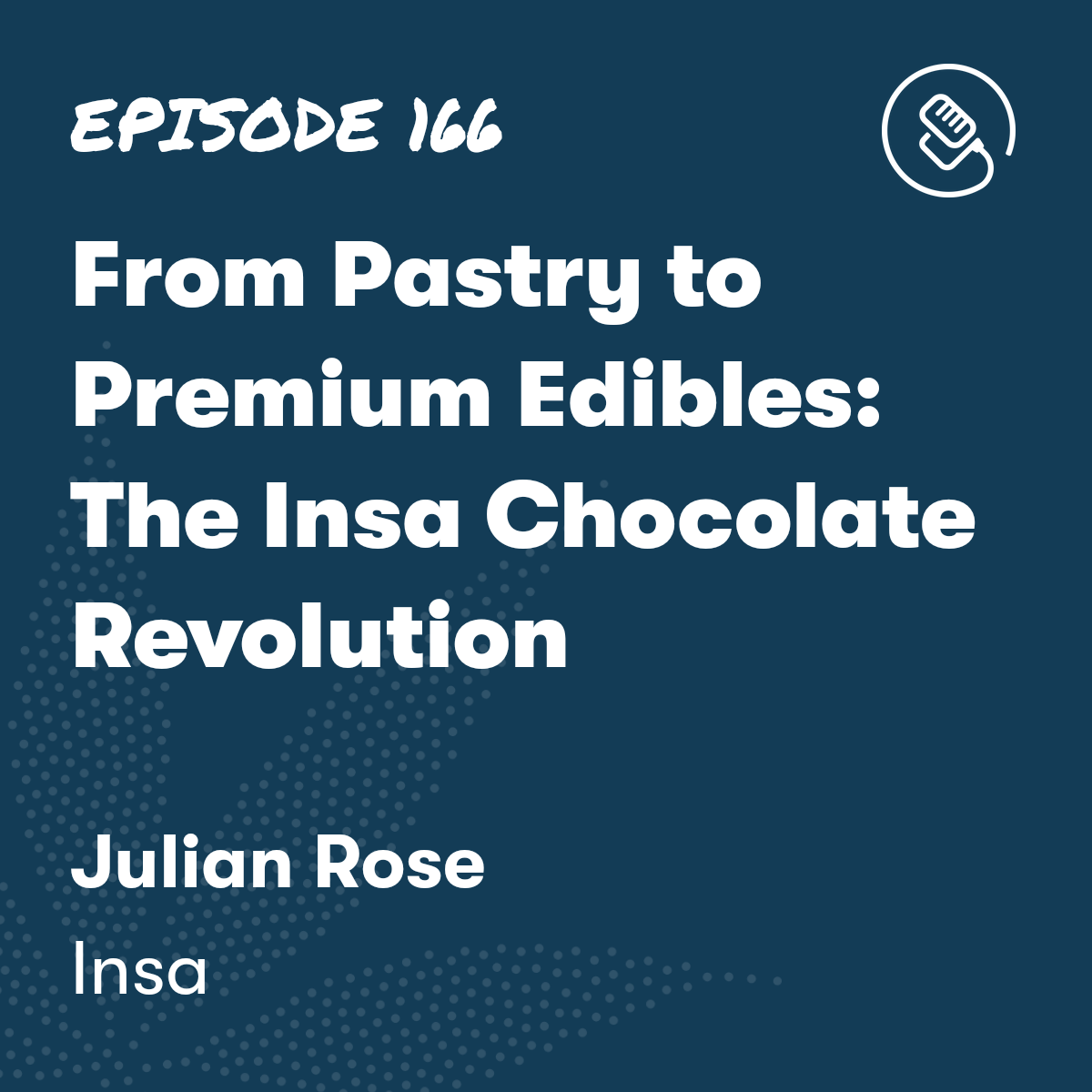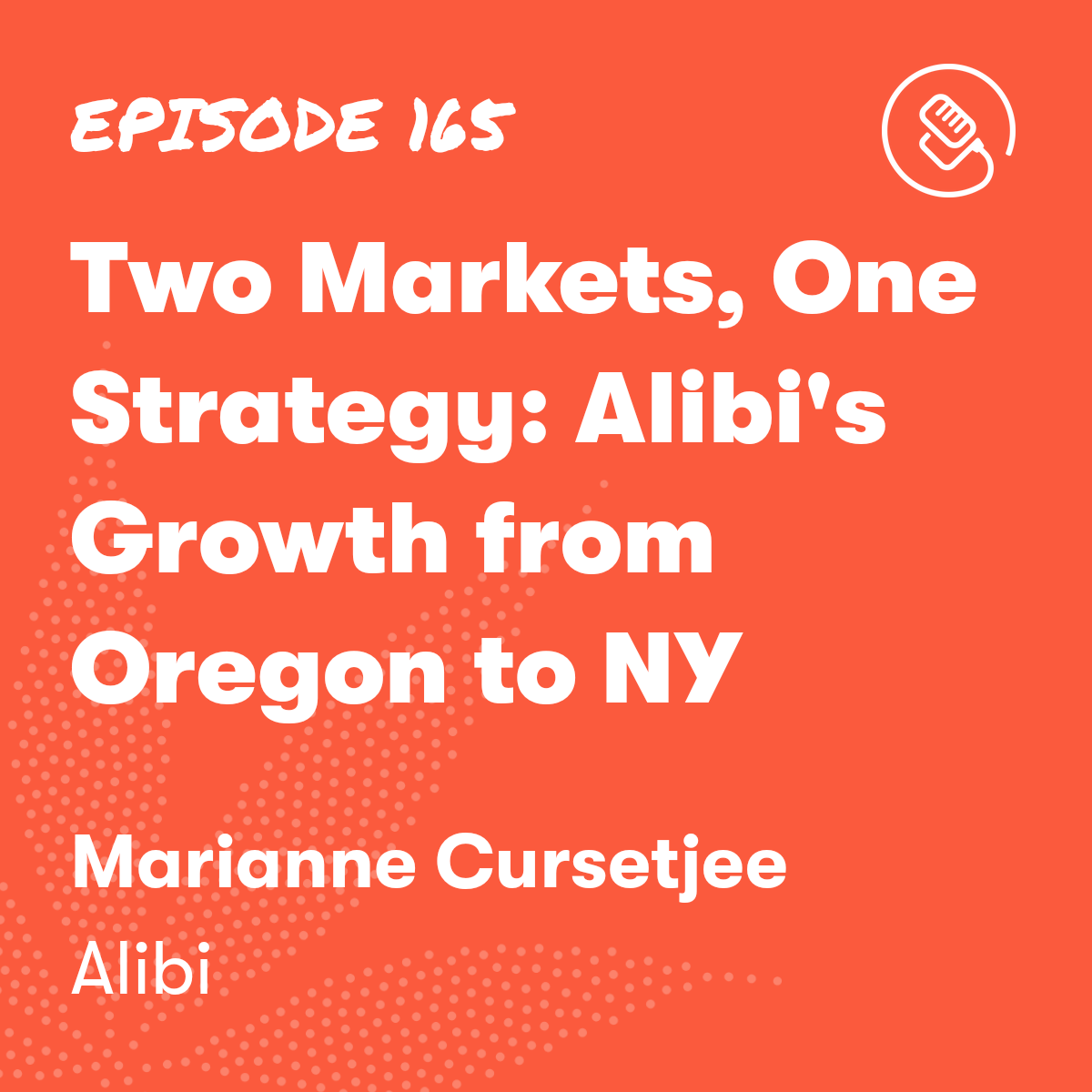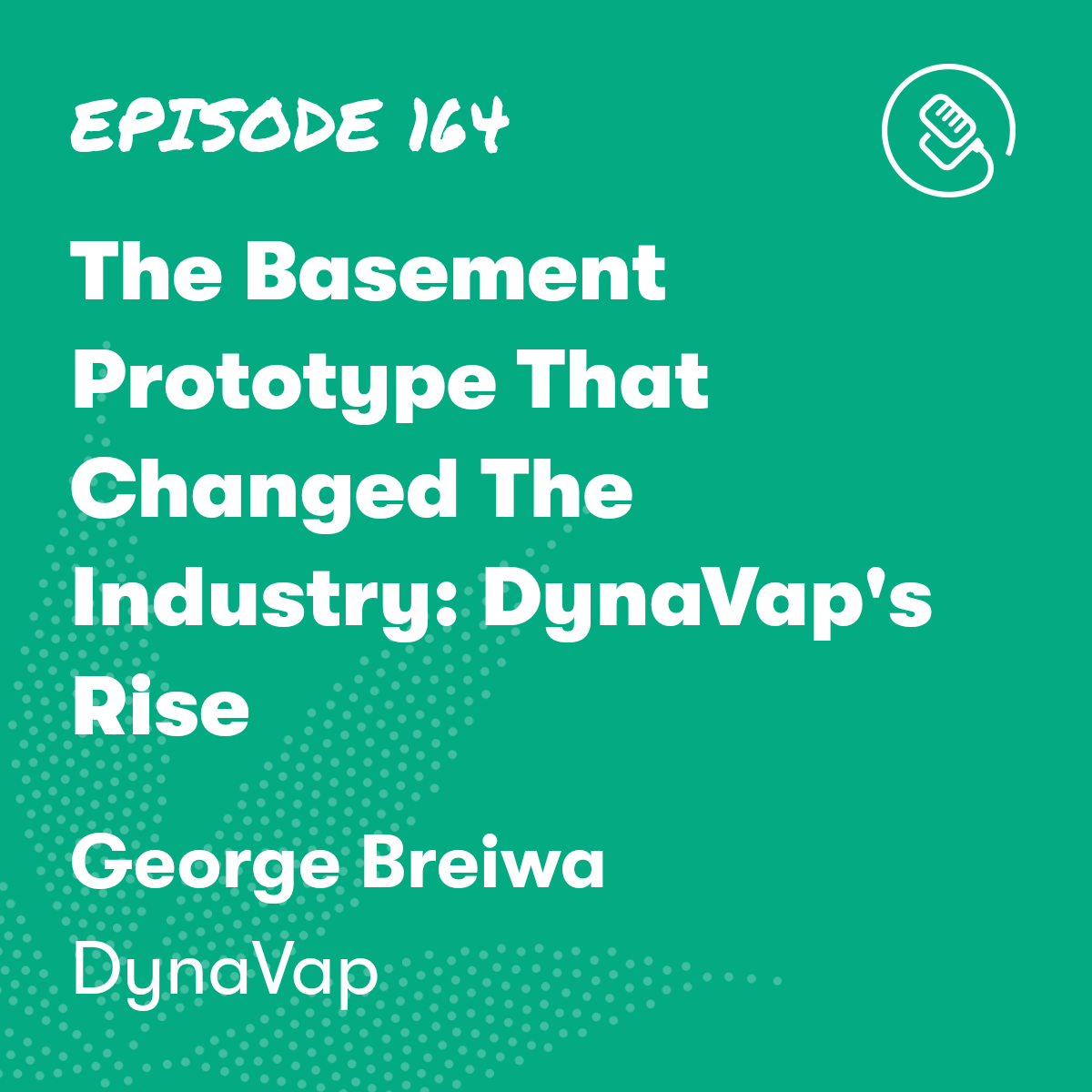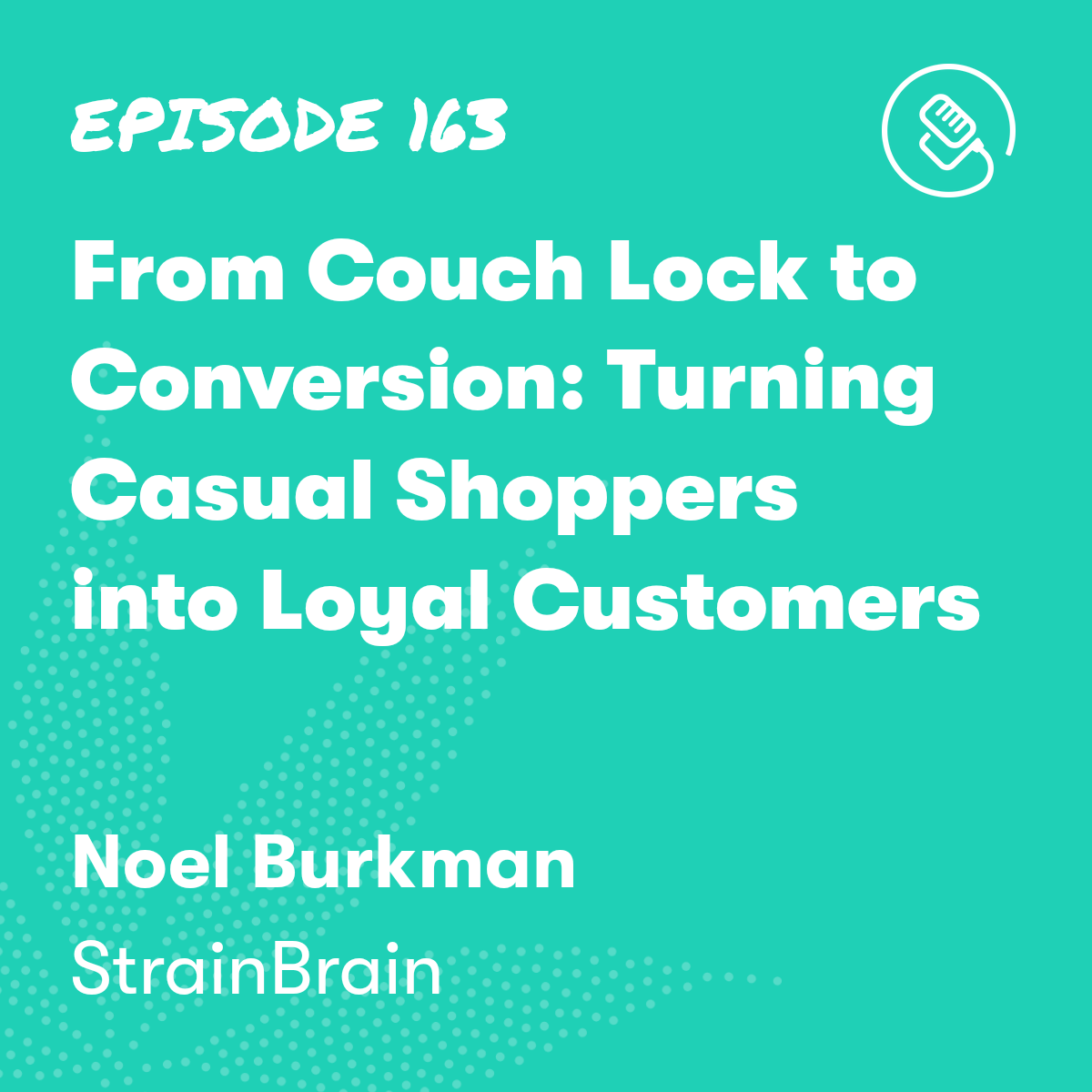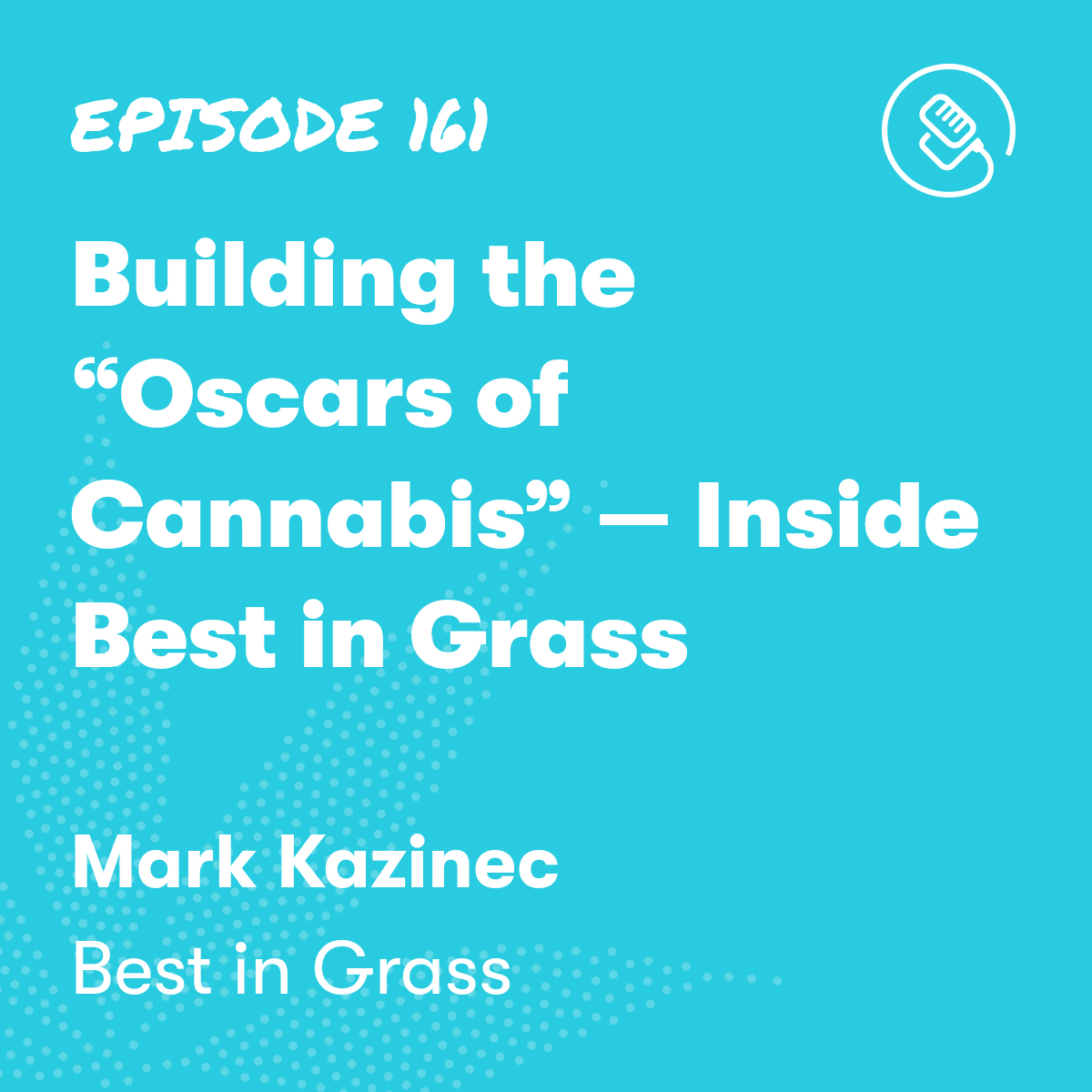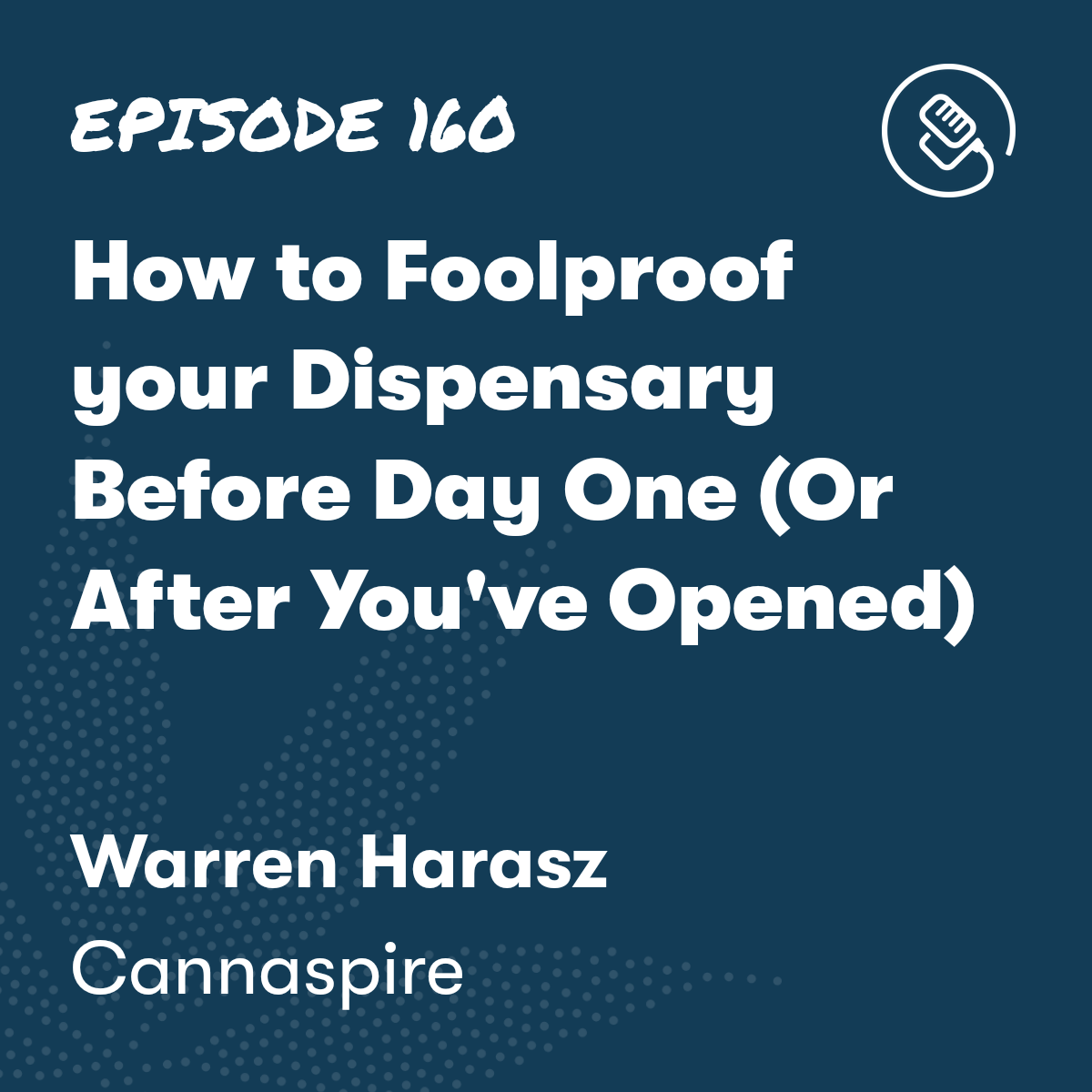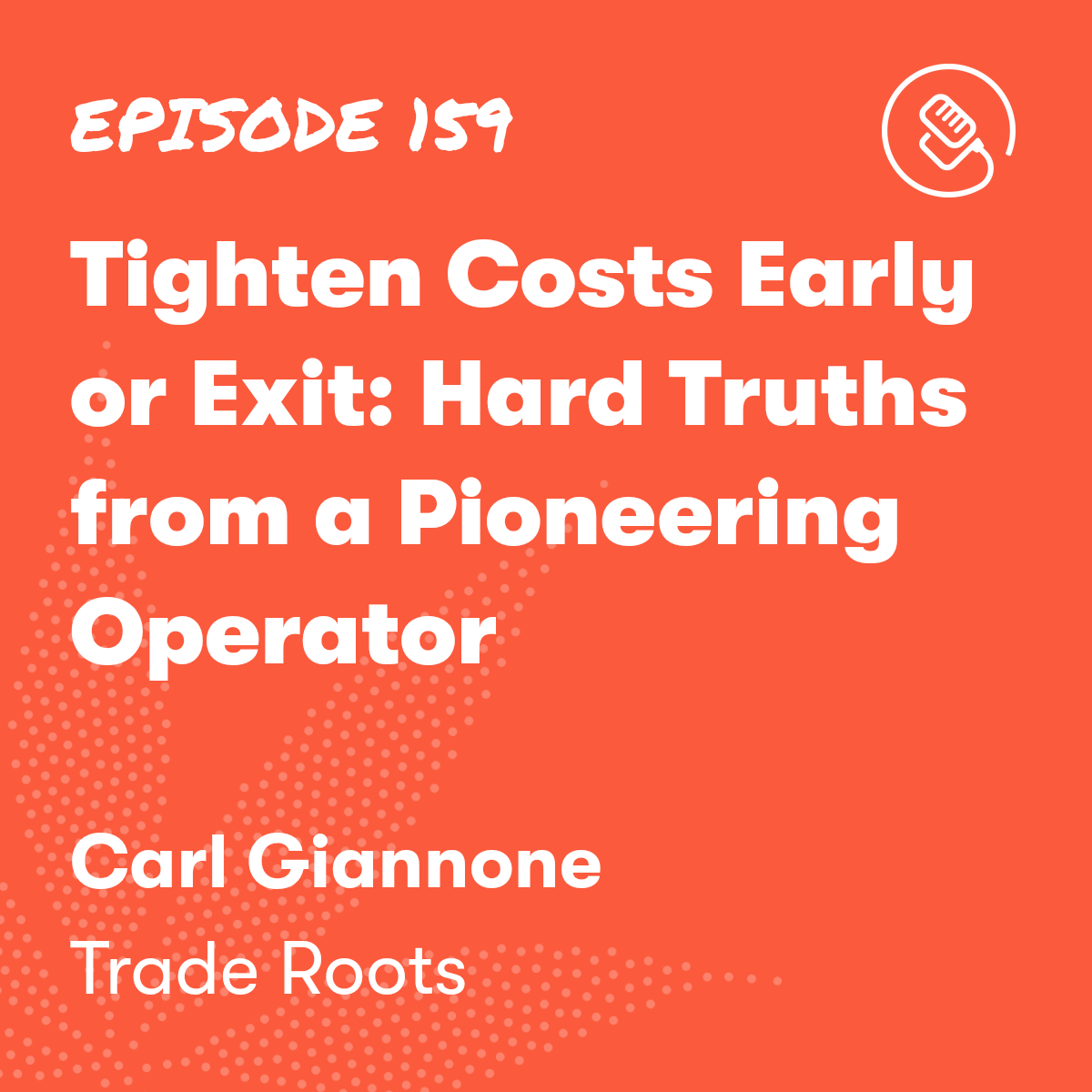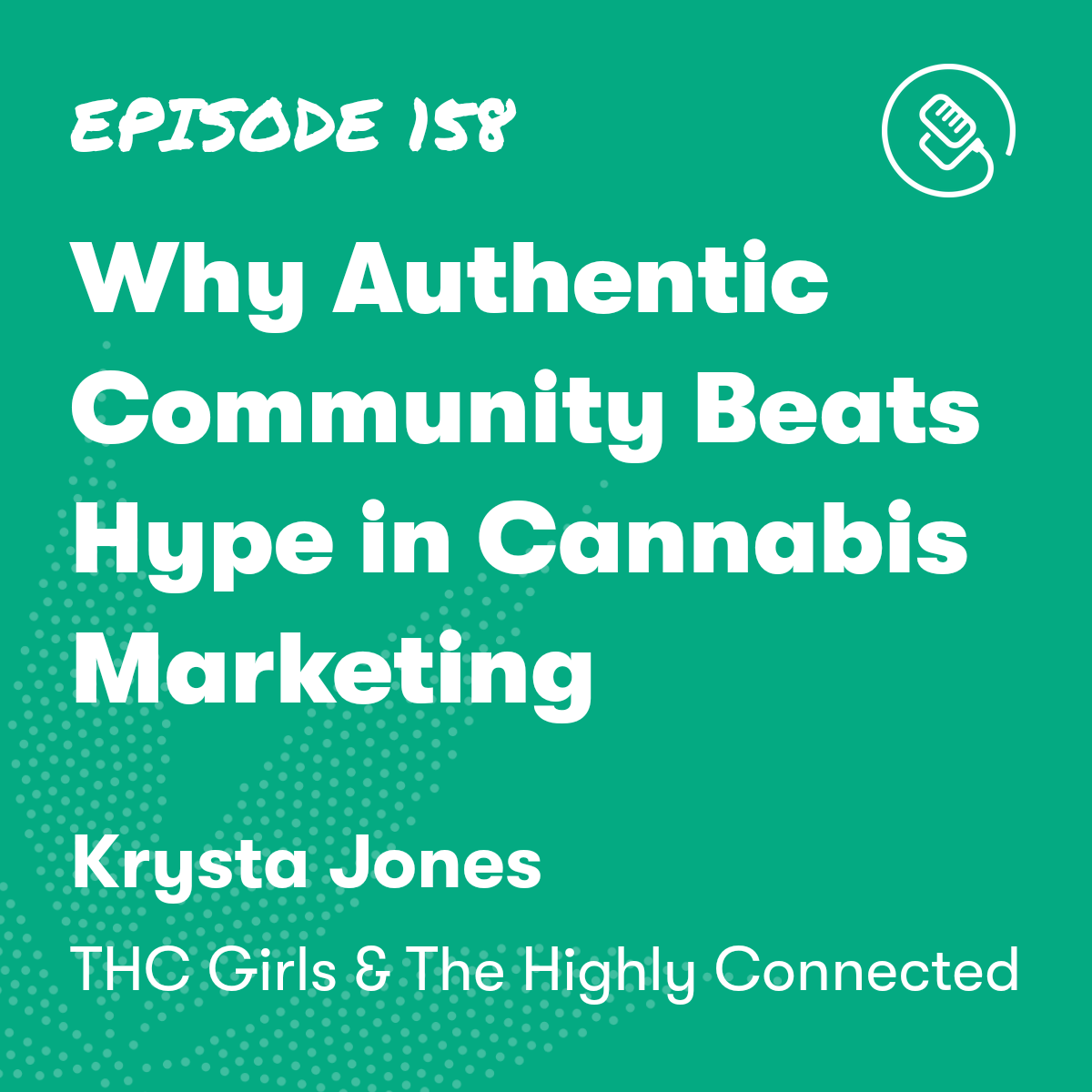

Reshaping the Future of Marijuana Policy with Toi Hutchinson (MPP)
Episode Description

Episode Transcript
Tom Mulhern: I just got back from MjBizCon a week in Vegas, and as you can tell by my voice it was amazing. You know, I met so many incredible people. I did so many incredible interviews and over the next few months I'm gonna be releasing these interviews, to share some of the amazing people working in the.
I talked with CEOs of well known brands, such Wana. And talked with CEOs and founders of companies and nonprofits that are working to change the industry. I talk to business owners. I even had some people that were just spontaneous interviews that I'm really excited to share.
MjBizCon is crazy. You know, you're always going, you're always meeting people. I am so grateful for the community of people that I met. I'm gonna start. The first interview that I'm gonna release is a, is an interview with Toi Hutchinson and Toi I wanted to premiere my MJ Biz Con series with Toi because she has so much passion for changing this industry.
I was almost moved to tears in my conversation with her talking. Social equity and really changing the industry. And Toi was a former senator in Illinois. She is doing amazing things as the CEO of the Marijuana Policy Project. They work to really open states that need to be open.
And so, I wanna share this interview that I had. I'll warn you the background noise is very loud and we'll do our best to try and edit it out. It's noisy at MJ Biz Con. So this gives you the full experience, but I hope you enjoy this conversation that I had with Toi Hutchinson.
Tom Mulhern: Toi Hutchinson served as an Illinois senator representing the 40th district from 2009 to 2019. During her time in the Senate, Hutchinson championed a variety of causes, including protecting women and children from.
Modernizing the state's taxes, structure, and legalizing cannabis. Prior to leaving the Senate, she served as the 46 President of the National Conference of State legislators. Toi is an original co-sponsor of the Cannabis Regulation and Tax Act, the first most equity centric law in the nation to legalize adult use cannabis in January, 2022, Toi left the administration and became the first woman president and CEO of the Marijuana Policy Project, an organization that's solely focused on ending marijuana prohibition Toi. Welcome to the Kaya Cast
Toi Hutchinson: podcast. I'm so happy to be here at the Kayak Cast podcast in MjBizCon. In my first MjBizCon. This is my first, is this your first one too? This is my first one too.
Oh, people ask me when I first came in, they're like, how do you, what's the best thing about it? I was like, I just got here.
Tom Mulhern: I know. People don't ask me that. They say, where's the bathroom? They asked me like, directions.
Toi Hutchinson: There's that. I think they think I worked six football fields in here of 35,000 people.
So it can be slightly overwhelming. You need to know where bathrooms are. So
Tom Mulhern: I'm surprised that this is your first one
Toi Hutchinson: is. So much in the policy kind of arena in my own home state. And you know, there's a whole thing about legislators traveling all kinds of places like you. It's frowned upon to be like going to these big conferences in Vegas or New Orleans or like really cool states cuz then people say it's a junket.
Yeah. And I wanted to, and I wanted to learn but I was so busy legislating. I couldn't, so like this has grown. I've always known about it. Yeah. And it's grown to the point where I, I have friends that are here who've been coming since the first and second ones. Yeah. And they said there was only like 1500 people here.
Yeah. And there's 35,000 people here now. That's insane. It's insane. Yeah. It's also indicative of the industry too. That's,
Tom Mulhern: that's so true. It's like a, it's a picture of where we've come from over the past bit. Tell me a bit about your background. Let's jump into your background. Okay. And then we'll talk about how you ended up with 35,000 other people here in cannabis.
Toi Hutchinson: So I need to probably start that by saying, I don't know how I Forest Gumped my way into this situation. Cuz that's how I feel at this point. Like I'm 49 years old and I'm very blessed to have been able to work on policy issues that I really care deeply about personally. Across my family and everything that, that is a, I can't tell you what a blessing that is.
Yeah. There's some. Who never get to know what it's like to wake up every single day and work in a mission with purpose. And I've been blessed enough to do that for a very long time.
So my background was, I started in the Illinois State Senate in 2009. I, by the time I left, which it seemed like it was a blink of an eye.
Yeah. That year that I, my last year in the Senate I was president of the National Conference of State Legislature, so that was all 50 state legislatures, both Democrat and Republican . And I was one of the lead point people on legalizing adult use cannabis. Wow. So that was also after I had just finished going to law school with three kids and three campaigns.
Oh man. So I would say that I'm not exactly sure how I'm sitting here, where I'm sitting. Yeah. But I'm very grateful for the fact that I am. And that I didn't give up. Because this means that much to me.
Tom Mulhern: So you were in politics and then you, how did you transition you we'll stick on that a bit more, but how did you get into cannabis?
Toi Hutchinson: So really when I started doing work and moving into leadership or the leadership track at the National Conference of state legislatures, we, I sat on the state and local taxation task force. And I was lucky not to just go to Colorado and celebrate the 10th anniversary of Amendment 64.
Yeah. Which made Colorado the first day to legalize What we did in NCSL was every time a state legalized, we asked them to come into the SALT Task Force and be like, what you doing with the money ? Like how you do. That was the first time I'd ever heard of a prospect of it's all gonna go to school construction.
Yeah. Or it's all gonna go like, because you needed for ballot initiatives, you. There has to be some sort of way to grab the public's, you know, like what is it that they care about? And if you take something like at that time, marijuana, should marijuana be taxed and regulated like alcohol? That was a simple question.
Couple sentences. Ask the people directly, they're always gonna say yes. Yeah. And then the state has to figure out how to do it. So we spent the next like seven, eight years interviewing legislators of every state that legalized. What do you wish you did? What do you wish you never did? What do you wish you could do over?
And almost every single time we talked to someone, they were like, we really wish we had thought about the equity part. We really wish we had thought about the criminal justice reform because what ended up happening is that we had a industry that started burgeoning across the country at the same time that we were still arresting hundreds of thousands of people for what we're now expressly saying is legal.
So I got into it really purely from a policy, and I was chair of the revenue committee, so I really cared about state taxation systems. And I thought if you know, like when we all came together and sat and thought about how we were gonna do this, it was that equity had to be three pronged. How do you change the face of the industry?
What do you do with the money? And how do you undo the past harms? At that time, I didn't know that is was gonna leave the Senate. I didn't know that it was time for me to move on to do something different. I had no idea. So when the governor asked me after we passed it to leave my very Senate, safe Senate seat, and then stand up the industry for the first time in Illinois, I was floored then too.
It was another Forest Gump moment. Like, how am I here? How am I, how is this happening? So I end up in this situation where it's like now. Now I'm carrying everybody's hopes and. And all my political capital. In service of this administration and a governor who decided to do this in an equity centric way and not make it about the general revenue fund and not make it about money to the state and not make it about paying off old bills, but really make it about people.
And so I ended up having to carry that like on my shoulders and in my heart and in my gut every time I walked in any hostile situation around people like I. Let people know that, that you are here in existence because you are who we dreamed of. And then Illinois became the first state to do it and he told me, governor Pritzker told me he wanted someone who cared enough about this to actually have like heart in it.
And I knew that, you know, that was gonna be so difficult that I couldn't stay for very long, but I knew we needed to stand it up. And so the law went live on January 1st, 2020, and then Covid hit right at the end of February of 20. So now I'm like, now I have to learn about supply chains and essential workers and how to protect supply chain access and how to make sure that we actually prioritize medical patients and do that in the backdrop where everybody's mad.
And everybody's upset. And everybody's protesting. But what ended up happening was that we surpassed liquor tax revenue. In just over a year. Wow. With tens of thousands of liquor licenses and only 122 cannabis licenses, we surpassed liquor tax revenue in just a year in the middle of a global pandemic that none of us understood.
And so at that point, I knew there was gonna come a time when I was gonna have to leave. And it was the first time that I ever left a job not knowing what was coming. And the marijuana policy project called me the very next day.
Tom Mulhern: Wow. Well, They probably saw like, Toi's Free.
Toi Hutchinson: I had no, I'm telling you, I sometimes, I still get chills largely because it's not, you know, it's not work for the faint of heart.
I see millions of dollars flowing for federal legalization, when I know that the only organization out there opening new markets is the Marijuana Policy Project. We go state by state. We're like the poster trial for incremental change. So it's hard to be in a very complicated nuance technical environment where it's no longer just should this be taxed and regulated like alcohol.
Now we have corporate weed, we have Main Street Weed, we have new entrants. We have social equity programs that are proliferating across the country and in cities and counties, sometimes with the power of the state purse, sometimes without. And we have an electorate that's much more educated about it, but a political discourse that's much more harshened about it.
So in all of that backdrop, we still have to do what we do every single day so that we can change every single state. Because what we say, if the marijuana policy project is we change laws and we change lives. and that speaks to me, which is why I said yes.
Tom Mulhern: How are you? Like, What is the marijuana policy?
How am I'm tired. Yeah. How are you doing? That's a lot. I'm sleepy. You're sleepy, you're tired, you're here. I'm sleepy. But how do you change laws and change lives? If that's what your goal is as the marijuana policy.
Toi Hutchinson: we have two separate, we have amazing, this is the thing, it's like I have a team that's like best in class.
Yeah. If Karen O'Keefe, who will forget more about cannabis than most people will ever know. Yeah, that's right. One of the longest serving tenured people at the marijuana policy project, like almost 20 years. And it's only 28 years old, so she's been there for a very long time. And she's written, I mean, the woman is incredibly talented.
She's our director of state policies. Oh, okay. And then we have Matthew Schwa, who runs our, he's the director of our state of our state campaigns. That's the ballot initiative. So this country is split up half and half. Yeah. 25 states have ballot initiative processes, meaning you could put something directly on the ballot and take it directly to the people.
And then you have the other 25 where it's all legislative. And where we're sitting right now in these great United States is that all the low hanging fruit has been picked. So we are now almost through all the ballot initiative states and really looking at mostly all purple and red states. The benefit though is that 70% of people believe in legalization in some form way across this country. And you and I both know 70% of people don't believe in evolution. But they believe in cannabis. Yeah. And it spans the political spectrum. So we have an opportunity if we work hard, if we work smart, and if we try to figure out how in the most divisive political time we have right now, how to get people to spend a little bit more time talking to each other than screaming at each other.
And isn't that great for cannabis, which is Oh yeah. Alcohol's different. You're mad all the time. Cannabis, you're not. You calm down and we can talk.
Tom Mulhern: It's interesting that you said that. Like that all the low hanging fruit has been picked. Yeah. Has been picked because you know, oftentimes we look at the landscape and we're like, if you just look from like a hundred foot level, you're like, okay, there's still these states that are gonna come on board.
But the easy states of like the Washingtons, the Colorados,
Toi Hutchinson: we had to tell people like what the landscape is. So right now and this is when I find it new, absolutely amazing that when I was a state centered in Illinois, we were the 11th state to pass it. That was 2019. That's crazy. It's only 2022.
We're at 21. Yeah, we were the 11th. Not the first. The 11th. The 11th. That was 2019. In the election cycle in 22, we just hit 21. So we have now 21 states that are adult use authorized. 38 states that medically authorized. We have 19 states that have not even decrimmed. We had 19 states in this country in 2022, where we got a multi-billion dollar industry operating almost with impunity, and we're still arresting almost 600,000 people every single year.
And you can lose everything you got in 19 states. So I cannot underscore enough how our work is not done. And it's incumbent upon organizations like mine and we're the oldest and probably the most well suited to actually just as what we do. To continue this slow march towards the fact that this conflict of law cannot stand.
Tom Mulhern: Those 19 states, are they pretty entrenched?
Toi Hutchinson: like they're pretty entrenched. We're actually working on a joint program with House Plant. Okay. Seth Rogan's. Oh, I know. House Plan and it's called Why State Sucks. Yes. And it's based on our 19 state report.
About how you can, there's 19 states where you can lose everything you got and it's amazing to me. Ubiquitous. The feeling is that, you know, everybody's doing it. No big deal. Go get the money. Everybody's doing the same, the other and how much people have been able to not think about
the fact that there's still people losing their entire livelihoods. There's still generational damage and the reality that you don't get racial justice. Is without economic justice. So it's not just about talking to black and brown people about not going to jail. It's also talking to black and brown people about being a part of this nascent industry that is now liquor 1933.
And we need a role in that too. So today you asked me how I feel. I'm hopeful and I'm excited and I'm nervous and I'm scared and I'm inspired, and I'm humbled and I'm exhausted. But I'm not gonna stop fighting. And I have a team that's best in class, and I believe in what we're doing.
Tom Mulhern: That's, you got me excited, like I've got these questions here, but like the vision of what you're doing is like, how is it not igniting the whole country?
Toi Hutchinson: I gotta be in front of as many people as I can. There's a lot of people in this space now. For a long time they were just the original legacy organizations and you know, I have so much respect for the work of DPA and and in the trenches of where they were with mpp when we, like, when all this stuff started and I, as a student of this stand on their shoulders.
I wanna be really clear about that. I stand on their shoulders. Today though, the terrain is very different and there are a lot of organizations talking and yelling and debating and challenging about cannabis, but there's still only one that still goes into each state. When that state is riped builds a coalition.
And changes the law. I am grateful that there are people who wanna see nobody incarcerated for cannabis convictions. I'm grateful that the president just said that. The United States president just said nobody should be in jail or in prison for a cannabis offense. I'm grateful that happened, but the only way that doesn't happen is if you change the statute.
So we at the Marijuana Policy Project, Changing the statute. We scratch for every nickel we get while we see millions of dollars on our, you know, tilting windmills campaign and the federal space. Like it's, and it's, it is necessary and needed. And I really do believe that every time you flip a state, you get stronger on the federal front.
I gotta do what we do. So that the people who then flood those offices to work on federal reform do what they do. But you can't have one without the other. And it is, tough, complicated nuanced work. It's necessary work and it's the right thing to do.
Tom Mulhern: What does it look like when you go into those states and build those coalitions?
Walk me through that process and what those coalitions kind of look
Toi Hutchinson: like. You know, it's here's what's in, I'll tell you about my own personal experience, and this is from the legislative side because one of the things that has become very clear to me. I'm pretty sure I'm the only person in the country that is legislated and then implemented and now, advocacy side.
So in my experience, and I'll say our experience on the ground in Illinois, building a coalition is hard. A lot of people have a lot of different interests to come to this. And every year that goes by it gets even more complicated because there's, it's very difficult to, to say where you can build a world where someone who just found out that they're gonna be awarded a cannabis license.
Since it's gonna be on the same footing with someone who's been operating in multiple states for the last 10 years. I, you can't create an equal playing ground for that. No. There's also this thing where people really don't understand the difference between cannabis, social equity, and dei diversity, equity and inclusion, which is corporate speak for building diverse organizations.
And we need that. That is important. We wanna build organizations that look like who we are. And the more people from all kinds of different places that you get into an environment, the better policy decisions you make, the better. The better returns you get more people in that thing with. Different lenses make for a better product, they make for a better organization.
So I don't ever want to discount DEI work. But that is not cannabis social equity. Cannabis social equity is centering the people who are harmed most by the prohibition of what we are expressly saying is legal now. It's very different and that really only happened to black and brown communities, period.
That's 55%, 24%, period. We know what those numbers are. We know what they are. Even though all demographics use cannabis at roughly the same rates, so depending on your jurisdiction, if you look like me, you can be up to seven times more likely to be arrested for the exact same thing. We are now giving people express and explicit permission to sell metric tons of, I wanna be real clear about what cannabis social equity is and what DEI work is as we build these organizations. So this work is really, this work is seminal work. Because this is Liquor 1933, we can let things happen the way they've always happened or we can work to change the system.
Cuz the one thing I do know is that systems produce exactly what they're designed to produce. So everything we see working right now is working as intended. If you don't like it change it and help us at the marijuana policy project, cuz that's what we do state by state, by state, by state.
Tom Mulhern: You guys are changing the system.
We change laws, we change lives, we change laws. You change lives. That's, do you see like you said, like you were at the 11th state in 2019. Now there's 21 states in 2022. When will we see all 50 states? Do you see, is that not the billion dollar
Toi Hutchinson: question? I know. When the billion dollar, you say, when will we get to the point where everybody will realize that the way we're operating is asinine and schizophrenic?
When will we see that? I don't know, but I do know that as long as there's one state that's still a prohibition state, we're not there. We're not there. As long as we still have an entire population of people who believe that when you do something for one group of people, that means you're taking something from someone.
Until the pendulum swings, when we can figure out how politically speaking, we can get back to talking to each other instead of screaming at each other. Mm-hmm. Until we can figure out where there are certain things that you know, actually span demographics and socioeconomic groups and racial class and distinctions and all the rest of that stuff.
That might be pie in the sky, Pollyanna and all the rest, that kind of stuff. But in the end of the day, none of us can act like half the country doesn't exist. So I don't know when that day will. I just know that we're closer to it now than we've ever been before 48% of people in this country right now live in legal jurisdictions.
And the leader of the free world just came out and told the world that no one should be imprisoned for this. And we need to actually now look at what descheduling or rescheduling looks like. I'm a proponent of descheduling cuz that's the only thing that handles criminal justice issues.
That's the only thing that stops. Anything on the schedule, if we stay on that schedule, does not solve that issue. And I just think it's fundamentally immoral to allow an industry to continue to grow while we have that reality in this country, we, that is, it's a direct violation of any human rights principle that you would have. It is a direct violation of equal treatment under the law. It is a violation. A violation of anything we say we hold dear in this country, which is supposed to be made of a law, this conflict of law cannot stand. No, can't. And remember, back to Lincoln, a nation divided amongst itself cannot stand and we're unfortunately dangerously close to a precipice like this.
My hope is that why we spend a lot of time talking about freeing the plant and freeing the people. That will also turn our attention to what kind of industry is going to spring up. What is our responsibility to help shape that and who gets a chance to be a part of it?
Tom Mulhern: And if we're shaping that future now, you know, I think it's so important that we're putting those good processes in place those systems that are gonna reverse that war on drugs.
Toi Hutchinson: And we have to remember there will be not, there can never be only one bill, only one thing that erases almost 90 years of both racism and capitalism. You know, I used to, my running joke is like, I'm not Toi the magic negro. I can't fix everything all at one time. I will say though, that the only way I know it'll never be fixed is if we stop. Mm-hmm.
The only way I know that it'll never change is if we give up. And the only way that I know how to build what we all say, we want is to just keep pushing.
Tom Mulhern: You're in the trenches with, with all of this policy change, do you feel that there's a sense of excitement or are people feeling worn out by all the division?
It's both. It's both.
Toi Hutchinson: Yeah, it's both. I don't think we can ignore the fact that people are feeling exhausted and tired just by normal political discourse right now.
It's like this is on, like we kind of, there's some things that we need to pretty much go back to agreeing that none of us can do by ourselves. So we need to do this all together. It's like how we live and work and play. We play with each other. I think an overarching Paul right now over the general electorate, because it, everything feels very heavy.
And you know, like when you don't trust institutions and you don't trust politicians and you don't trust campaigning and you don't trust money and things like if you don't if you don't trust any of the things that kind of are supposed to be the guardrails to how we operate amongst each other.
Then erosion in the public sphere very, very high right now. So that's gonna translate to whatever conversation you're having. I don't care if it's, I don't care if it's cannabis or not cuz it's amazing. You can get like four people across the political spectrum and don't agree on Jack. They don't agree that sky's blue.
They don't agree on evolution, they don't agree on anything. Yeah. They all agree about this, but it's still hard to get them past party partisan stuff. Even though they just, even though they just all sat there and said, yeah, I agree. I agree with this, I agree with this, I agree with this and I agree with this.
We are becoming a little tribal, totally in the way that we organize our thoughts and the way that we organize our things. And I don't, I wish I knew an answer to that. I wish, I think all of us, you know, wish we could get to a point where some of that pendulum could start to swing back. I don't know what that answer is.
All I know is that it cannot be that we have a multi-billion dollar industry. And we still arrest almost 600,000 people every single year. I've never met anybody that disagrees with that. I've never met anybody. And when you really do understand people who have been sick, incredibly painfully sick, who use this as a medicine, when you understand the cultural implications of people who will tell you this is a reclamation like Native American Indigenous people will tell you in a heartbeat. This is a reclamation of our own plant-based medicine history. We are not new to this. Yeah. Y'all are. We're not. We're not. They will say that there are cultures around the world that are uniquely tied to this plant.
This has been here for millennia. Every human body has a cannabinoid system. You only are in stasis when you have cannabinoids that can meet that cannabinoid system. That's a scientific fact as you can, as we can get past only talking about adult use from the standpoint of inebriation and respectability of politics and really talk about what the magic of the whole plant is, including the zero waste possibilities for hemp.
Yeah. It's climate change abilities. The way we can attach those to the United Nations ESG goals, we really are talking about it, a thing that can change economics and scales across the world. And there's only 10 countries that fully. Fully regulate cannabis. There's 20% of cannabis that is actually sold in regulatory markets.
80% of it everywhere is still on the secondary and legacy market, which means this is still new. This is still growing. This is still nascent. This is still in the beginning stages and you can bloom where you're planted. It's a whole ecosystem. It's not just about dispensaries and cultivation. Yeah. There's a whole ecosystem.
You're doing a podcast right now to tell the story about cannabis. Yeah. We're not touching a plant. But we're talking about cannabis and hopefully people are gonna listen and understand that if you wanna be in this ecosystem, you can bloom where you're planted.
Tom Mulhern: Are you finding creative ways to simplify that message?
to drop some of that stigma to normalize it, like through the marijuana policy
Toi Hutchinson: project. I'm trying. You're trying, like I'm trying. We did a really interesting webinar with moms just to talk about how to talk to your kids about weed. Which is funny. Because my partners in, I don't wanna say in crime cuz we actually changed the law.
So it wasn't a crime, but my four women, it was Senator Heather Steans in Illinois. It was State Representative Kelly Cassidy and then state representative who's speaker Protem in the house, Jehan Gordon-Booth, and when we all came together, they first called us the marijuana moms. Part of us was we.
Part of it was like, we need to start giving people the regular normal language to be able to talk about this. Yeah. Like it's amazing how many parents are hiding their own use from their kids. Yeah, I was one of them. Me too. My kids caught me before I caught them, and so it's like now it's like I gotta, I have to be able to tell them and talk to them from a place that is void of, you know, hypocrisy that I'm not talking, there's no moral issue here. I do want you to know how to comport. I do want you to know how to exist in the world. You can't go to school or work completely inebriated, no more than you can with alcohol. So talk about this the same way you do alcohol.
Mm-hmm. So it's kind of like bridging the gap from should this be taxed and regulated like alcohol? Can we talk to young people the same way we talk to them about alcohol. Because they know when you're lying. If you keep telling them that this is the same thing as heroin and methamphetamines, if you keep telling them this and they know that's not true.
Then you cannot educate them on the things that will kill them, cuz they don't believe you and they don't trust you. So I try, you know, through our 501C3 arm in the education and advocacy thing, to also just normalize language and. At the end of the day, I'm a middle aged suburban mom that talks about weed a lot, a lot, and you can't move really good policy if regular, everyday people don't even know how to talk about it.
Yeah. It's fascinating.
Tom Mulhern: And if you can't talk about it, you can't, people only focus on the negative effects of it, but the health benefits of it, like you were saying. Yeah. You know, there's so many studies into those benefits of the plant. And if we're not, if we're just only focusing on you take it to get high.
And that's the
Toi Hutchinson: only thing only if we only talk about it from an inebriation standpoint, we are missing so much. And indigenous cultures around the world have been trying to tell us this for eons. So I'm excited about new entrants the place. I'm excited about new voices into the conversation.
I love the explosion of women into this. And the explosion of women of all different kinds of races that have found ways, the way we always do wherever we are in the world. To not only better our families, but better our communities, even when we have to work through stigma to do it.
When you actually invest in women, women invest in the community.
That's what micro lending is all about. That's what like we know this, we have data to, we have data to show this in every sector you could possibly have when you invest in women starting businesses, what women do is invest in their families and their communities. That's not the case with you dudes. I also say that the close, the closer related to that is that it's really only the girl seeds of this magical plant that do it anyway.
So we really should pay attention to the magic Yeah. Of the femininity of this whole thing.
Tom Mulhern: Totally. I, I am a hundred percent with you on that. Imagine a world of full, everything's decriminalized. You know, everything's legal. What would that world look like?
Toi Hutchinson: You know, you're talking about lifting whole economies of scale. Yeah. You're talking about more people in the job market. One of the things we talk about in terms of say investing in social service spending. Every dollar you invest in social service spending, you actually get a return of about $6 and other things that the government or the state doesn't have to pay for.
So when you think about the economic cost of what the criminal injustice, what the criminal justice system does, what the prison industrial complex and, and the mechanisms by which it's run off of, anyone that cares about criminal justice reform knows that the single best thing you can do at the outset is to stop cannabis arrests.
That's the single best thing you can do at the beginning because it is the entree into mass incarceration. That's what it is. So thinking about a world where you have generations of people who do not have to deal with that baggage, because if you're black or you're brown, every sentence is a life sentence.
we don't get the luxury of youthful mistakes. Or outgrowing something we did in the past. Every sentence is a life sentence. So thinking about changing, how many people actually can participate in the full economic stream and how that benefits everybody, not just the person at, you know, at stake in that circumstance.
everybody around it, their own entire ecosystem. You take one person out of a family. It's how actuarial tables are built about, like if you take the wage earner out of the family. What kind of insurance do you need? How much did we to cover this if this person's not here to make money anymore?
That's the same thing that happened when you pluck. All kinds of people from their families, their earning potential, their living potential, their ability to access student loans, land a job, sign a lease, do any of those things. When you remove that, you don't just affect that person. Yeah. You affect that person's parents, their kids, their siblings.
They're thinking if you live in a community where that is the proliferated model of what's happening on that. So now it's not just that house, now it's that street, and now it's not just that street, it's that neighborhood. It's not just that neighborhood, it's that city. So you're talking about whole economies of scale.
When you put people back into being able to fully live productive lives as a part of our economic stream, we know what the status quo is. We know what the opposite of that is. So anyone that starts. Oh, we can't do this because this might happen. Yeah, honey, I know what's gonna happen. We got data to show you what's gonna happen with this.
That's a non-starter argument. Yeah, but it's still a prevalent one, which means the stigma is still there, which means our work is not done. And if we could get to a world,
if we could get to a world where that was a reality. There's no telling what people might be able to accomplish. Yeah. What that little kid on the block whose dad didn't go away, what that little kid on the block whose mom was actually able to be there and stay with them. For those kids that were raised, knowing that their parents didn't have to operate outside the system in order to just survive because that's the only place our policies allow them to be.
If we could change that, we could change the world.
Tom Mulhern: I'm moved by the passion that you have for this hope for the future, and I know that it comes deep from your core of who you are. Surprise, and I know it's time for people to stand up and work towards this future because I, as a parent, I want the future for my kids and for your kids to be this hopeful future and my grand, our grandkids and those grandkids, all those things to, to create new communities of built around this plant that could be transformative, but not even only built around that, like you're saying, it's, if we took away that, pulling
families apart and especially marginalized black and brown communities. The world would look different.
Toi Hutchinson: The world would look different. And I wish I knew when we would get to that world. I just know that it's our responsibility to be a part of building it. Yeah. Cause it won't just happen. It won't just happen. Power concedes nothing without demand. So it's time for us to demand.
Tom Mulhern: How do people join you in what you're doing? Like how do people support you? Can you know, there's, I don't know how 1200 plus vendors can vendors be a part, like businesses be a part of it? Marijuana policy
Toi Hutchinson: project we do. There's a low level membership thing. It's $25 and you can get a sticker.
Yeah. Oh yes. But, you know, we have to we really are scratching for every nickel we can, so we can keep running these campaigns. And like I said, there's 19 states that haven't even decriminalized yet, so it's like I look at it's, it's amazing to me to be at a conference where there's a whole fully full on baked, no pun intended, community industry that's happening here.
And I know that this country looks the way it does largely for the work of this organization that I'm so blessed to be able to lead right now. And I also know that means we have to get the word out for a new generation of people who don't know what the original struggles were. Who now are living in a world where cannabis in some sectors are, is not stigmatized.
And there's now a proliferation of all the people who will give you real stories about the medicinal benefits and how cannabis saves their lives from professional athletes to people who just all kinds of walks of life. That is still juxtaposed by the fact that we still have incredibly paid opposition by some members of law enforcement, by people who just will not let go of old outdated addiction methodology from, you know, I don't know how many years of D.A.R.E
programs that we know don't work and are based on fallacies and not even good science. All of those things have their impact. So you can find us online at www.mpp.org. You can become a member, a multi-month subscribing member. If you're vendors or organizations here, we have a thing called a policy council.
We can actually come in and help us really think about issues that real companies are facing on a regular basis as we're contemplating regulatory systems and how we do model legislation. , and for the most part, please call your local state senators and state representatives, both at the state level and at the federal level so that people understand how significant it is to be in the year 2022 knocking on 2023's door.
Where we still have to ask the question, why are we doing it like this? Why are we doing like this? There is a better way and we know what the way is and we should be leading drug policy, not exporting, racist, outmoded policies that have really destroyed generations over decades and decades.
It's way past time for the United States to grow up and meet this moment in time. So I'm here for the fight. I need everybody that I can find to come with me.
Tom Mulhern: What we wanna join you in that. Thank you. So thank you for being here. Thank you for sharing this.
Toi Hutchinson: This is, you're so welcome. Thank you for letting me.
Yeah. Thank you for letting me. It was an honor.
Tom Mulhern: Again, I wanna thank Toi for really taking the time to passionately share her heart for how the industry could be different and how she is working to make that change, and really how we all need to work to make that change in the industry.
If you wanna find out. Be sure to go check out the Marijuana Policy Project. We'll have all of the links in the bio, and you know, if you haven't been out to MjBizCon or one of these amazing.
You gotta get out there, you gotta connect with the people in this community. You need to make connections because really at the end of the day we're working together to to change the world for good. That's what cannabis is doing. And not, might sound crazy, it might sound cheesy, but I really think that together we can work and we can help make people's lives better.
Make sure you subscribe to the podcast so you can get all of these interviews. You know, we're gonna have, we're gonna have some really fascinating interviews with people across the industry. So you're not gonna wanna miss out, subscribe, check out our website, kayacast.fm



